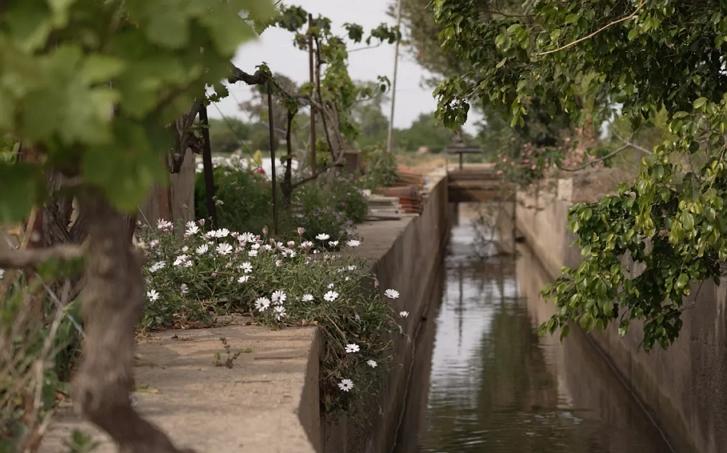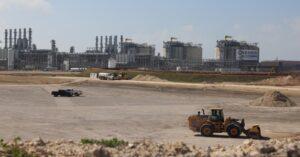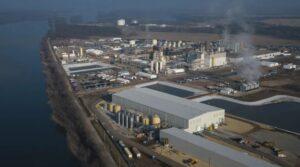The availability of freshwater is crucial for sustaining life on Earth, and it is a resource that is currently facing significant challenges. The increasing demand for freshwater, coupled with the impacts of climate change, has made it even more valuable and essential, even in Europe. The frequency and intensity of floods and droughts have been on the rise, impacting the lives of millions of people across the continent. It is imperative that we take action to protect and manage freshwater resources in Europe to ensure a sustainable future for all.
Europe has been fortunate to witness an overall improvement in water quality and a commendable level of access to drinking water. However, the region is not immune to the challenges posed by climate change and the ever-increasing demand for water. To address these issues, innovative approaches are being embraced to enhance cleanliness, distribution, and recycling of water resources. These initiatives aim to ensure a sustainable and reliable water supply for the present and future generations in Europe.
Lake Constance: Cutting pollution at source
In Germany’s Lake Constance, a remarkable feat has been accomplished: achieving progress while preserving water quality. The principle is straightforward: the cleaner the water, the less effort required for its purification. This serves as an inspiring model, especially as the new European directive on drinking water strives to ensure universal access to high-quality water.
Friedrichshafen, the birthplace of the Zeppelin, is a city nestled on the picturesque shores of Lake Constance, which happens to be the largest reservoir of drinking water in Europe. The water from this lake quenches the thirst of millions and is a source of immense pride for the city. Moreover, this region is leading the charge in the emerging fight against micro-pollutants.
According to Marie Launay, a French scientist and the Head of the Micro-Pollutants Competence Center at Baden-Württemberg, there is an increasing reliance on chemicals found in household products. This includes a higher usage of medications and pesticides. The concerning aspect is that these substances, especially those that are persistent, tend to linger in the environment and pose a threat to water quality. Therefore, it becomes crucial to eliminate them in order to safeguard the purity of our water.
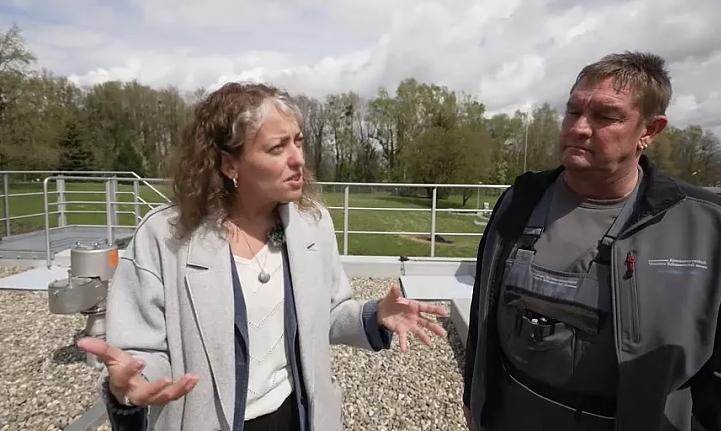
Marie Launay leads a dedicated team focused on addressing the detrimental effects of micro-pollutants on fish, ecosystems, and human health. One aspect of the solution lies in utilizing plants that effectively treat wastewater before it is reintroduced into nature.
Heiko Kiebler, the manager of the Eriskirch Wastewater Treatment Plant, emphasizes the importance of safeguarding the drinking water reservoir. Given that numerous individuals rely on it, there is a pressing need to ensure optimal wastewater treatment.
For the state of Baden-Württemberg, this concern takes top priority. As a result, additional ozone treatment has been implemented across multiple stations to enhance the wastewater treatment process.
“Ozone offers a chemical process that effectively breaks down pollutants, leading to the elimination of smaller molecules during the treatment plant’s operation.”
As new European regulations expand the roster of prohibited pollutants, this technology is expected to be embraced in other locations as well. Launay reveals that there are proposals at the EU level to eradicate micro-pollutants in significant stations and environmentally sensitive areas. Moreover, the financing of these facilities for environmental protection is envisioned to be covered by the pharmaceutical and cosmetic industries.
During the winter season, the Alps experienced a significant reduction in snowfall, resulting in a decreased water inflow into the lake. However, when compared to the situation in southern Europe, the impact is relatively minor.
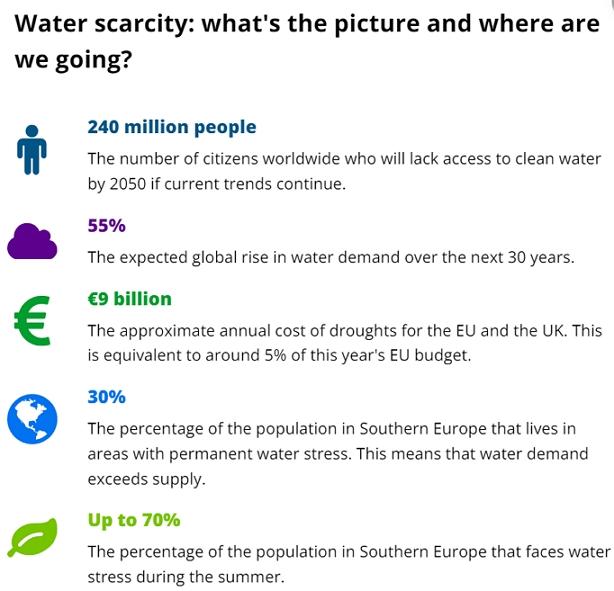
Desalination in Spain
The water reserve levels in Spain are causing widespread concern. The region of Valencia, like many other parts of Europe, frequently experiences drought conditions. In response, innovative solutions are being implemented, and one such solution is the conversion of seawater into freshwater. Desalination plants currently contribute approximately 9% of Spain’s total freshwater consumption.
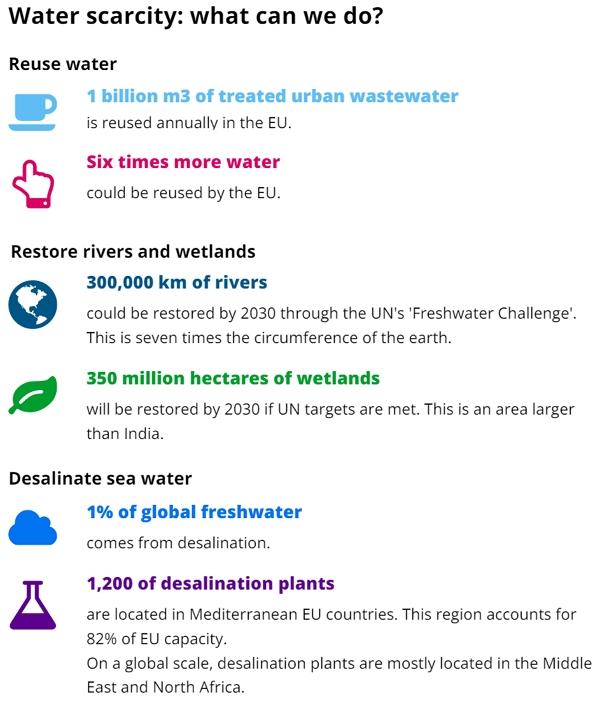
While desalination technology is known for its high costs and energy requirements, it remains a necessary solution. According to Jose Luis Zaplana, the Plant Manager at Cadagua, the desalination plant plays a crucial role in redistributing water from the Jucar River to other communities facing water scarcity. Despite the expenses involved, the benefits outweigh the alternative of water scarcity.
Mariola Dura, the Chief Operating Officer at Acuamed, highlights the significant economic advantages of desalination. It provides support to various sectors such as tourism, agriculture, and industry. Consequently, the reliance on rainfall becomes less worrisome, ensuring a more stable water supply for the region.
Wastewater reuse
Spain has emerged as a leading nation in Europe when it comes to reusing wastewater, particularly in the field of agriculture. In the Horta region, a significant agricultural zone located near the city center of Valencia, fresh produce is cultivated to cater to the needs of the local population. More than half of Valencia’s wastewater is recycled, and to gain insights into this process, we find ourselves back at a treatment plant.
At the Carraixet Wastewater Treatment Plant, water undergoes ultraviolet treatment before being supplied to farmers. Daniel Gomez, the plant’s manager, explains:
“This treatment serves as a refinement process following the secondary treatment. It was the farmers themselves who initially expressed the need for such a solution. They now have the assurance that water of consistent quality will always be accessible to them.”
The practice of wastewater reuse holds immense untapped potential, which is further highlighted by upcoming European regulations set to be implemented during the summer. These regulations aim to regulate and promote the practice, signaling a positive step towards maximizing its benefits.
Juan Ángel Conca, the General Manager of Entidad Pública De Saneamiento De Aguas Residuales De La Comunidad Valenciana, explains the remarkable potential of wastewater treatment plants. He highlights that in certain parts of the world, the water derived from these plants is even suitable for drinking. Despite its factory-like appearance, these plants serve as valuable resources.
“They provide clean water for agricultural purposes, contribute to the preservation of the environment, and generate slurry, which is utilized as fertilizer in agriculture. Additionally, these plants produce biogas, specifically methane, which serves as an energy source within the facilities.”
The recycled water is combined with water from a river before being channeled into traditional irrigation networks, further enhancing the efficiency of water distribution.
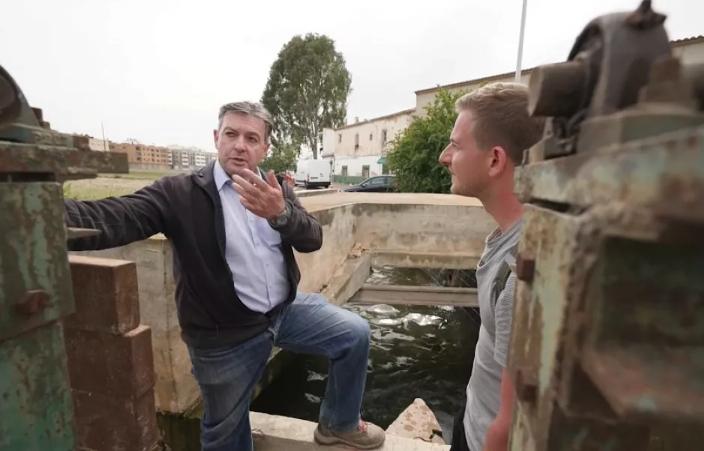
Enrique Aguilar, a local farmer, emphasizes the significance of utilizing treated water from the wastewater treatment plant. In a region where water availability is limited, especially considering its proximity to sea level, it is crucial to make use of this resource. Failure to irrigate the land adequately would result in saltwater intrusion, eventually transforming the currently fertile vegetable garden into a barren desert in a matter of years.
The treated water plays a vital role in watering a variety of crops, including fruits, vegetables, and a significant quantity of ‘chufa,’ a Valencian tiger nut that serves as the main ingredient in the local beverage, horchata. The ability to access and utilize this water resource helps sustain agricultural activities and preserve the productivity and diversity of the region’s crops.
Aguilar recalls the initial reservations among farmers regarding the use of recycled water. Concerns arose regarding its quality and suitability for irrigation. However, after more than 25 years of using recycled water, the results have been consistently positive. Aguilar firmly believes that water is water, and recycled water possesses all the necessary qualities for irrigation. The use of recycled water has seamlessly integrated into their farming practices, with no noticeable issues or drawbacks.

